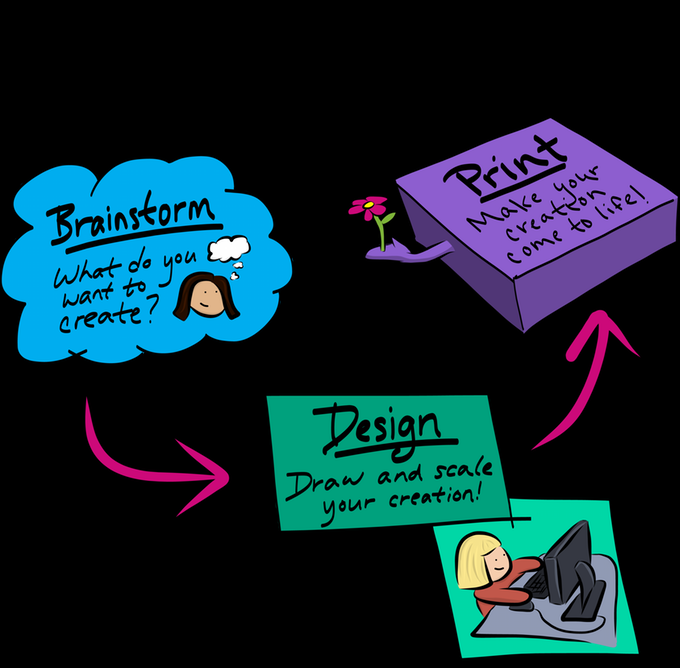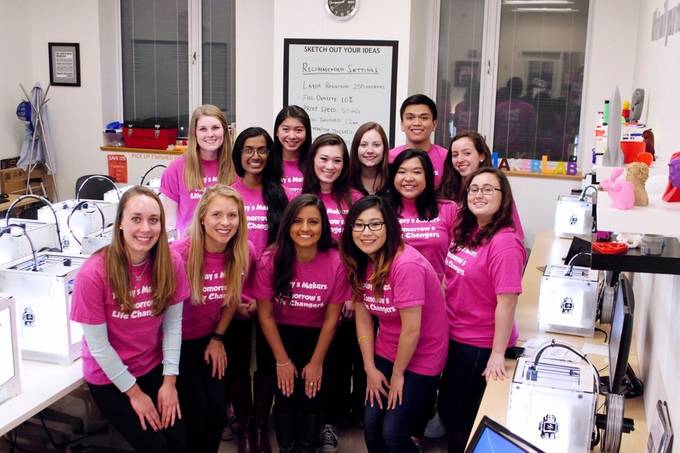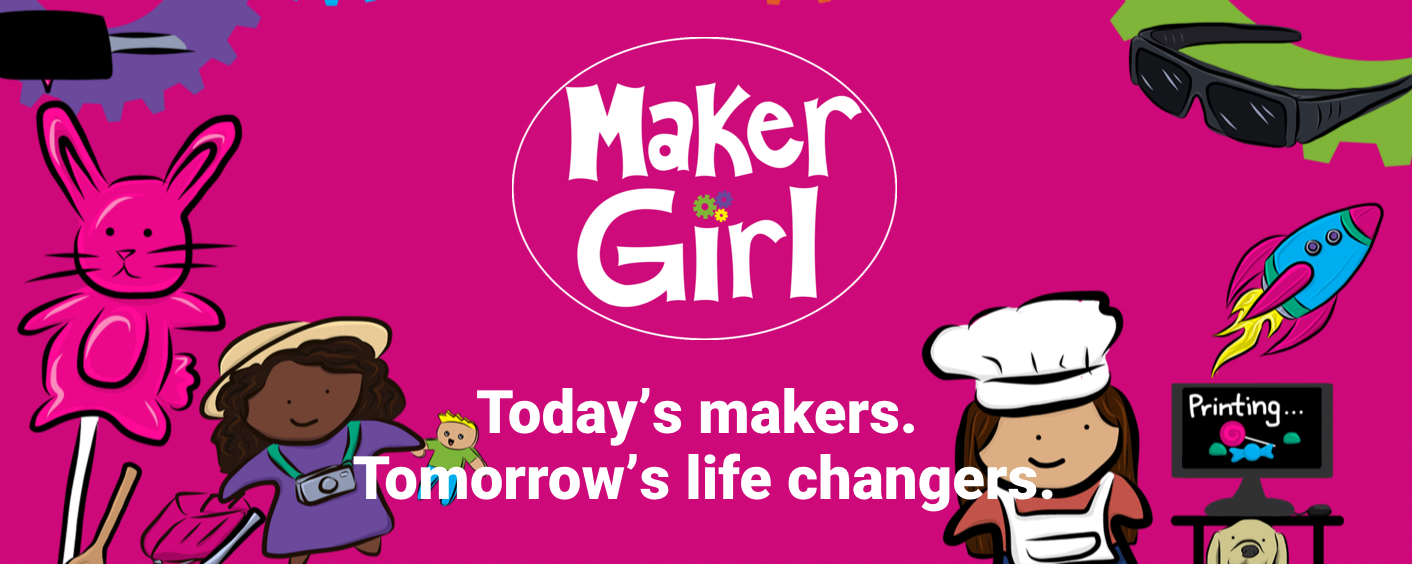According to the National Girls Collaborative Project, while women received 57.3% of bachelor’s degrees in all fields in 2011 and 50.4% of science and engineering bachelor’s degrees, they only received 19.2% of all specifically engineering degrees. The reasons for this are not completely clear, but one group of women in CU seek to change those numbers for the better.
MakerGirl is a non-profit organization founded in October of 2014 by a group of four U of I women (Elizabeth Engele, Julia Haried, Sophie Li, and Emily Woodward) seeks to close the gender gap in STEM fields through the intelligent (and creative) use of 3D printers. According to MakerGirl, their sessions “teach girls about different STEM related topics, encourage girls to build anything they envision, and provide girls with female role models and mentors.”
The company is very mission-focused, and their mission is a deceptively difficult one: inspire girls to be active in STEM. We’ve written more extensively about MakerGirl back in 2015, but since then they’ve expanded their efforts and are now seeking crowd-funding through Kickstarter to help put education on the road.


The company’s planned project is a 3D printing lab on wheels. Fitted with 3D printers, laptops, and various teaching materials to allow MakerGirl to take their remarkably successful 3D printing sessions to girls in areas further away from the opportunities available in CU and Chicago.
MakerGirl plans to spend 8-10 weeks traveling across the country, to “reach as many communities as possible across the country”, and collaborating with Makerlabs, FabLabs, Girl Scouts, schools, and summer camps as they do it. They hope that their $30,000 goal will not only maintain and supply the 3D printers, laptops, and other session-related accoutrements, but will also pay for the travel and board for the team members that will be conducting the sessions.
The sessions in question focus on helping young girls (7-10 years of age) to understand the creative engineering process and to understand that no matter what their interests, they can be combined, or further realized, through engineering. A typical session lasts 90 minutes and is broken up into three sections: the Brainstorming Process, the Design Process, and the Printing Process.

During the Brainstorming Process, the girls are introduced to either a specific problem or a general topic that is being addressed by 3D printing. They are then given some time to brainstorm and illustrate ideas on paper. As an example, in a recent session, the girls were introduced to 3D printed prosthetics and tasked with designing an object that could help someone.
After the Brainstorming Process comes the Design Process, during which the girls use computers to build their product in a kid-friendly CAD (computer-aided design) program. Once they have built their product, the design is converted to the filetype used by the 3D printers by the MakerGirl staff. The staff also help to fine-tune sizes and make other final printing decisions.
Lastly is the Printing Process. While the actual printing usually takes less than 20 minutes, the Printing Process might be the most exciting part of the day. While the girls’ objects are being printed, the MakerGirl staff explains in detail the process of the machines and how they work. The girls get to watch their designs coming into existence layer by layer, and by the end of the process, will know the way a 3D printer works better than most people. At the end of the session, each girl gets to present her design to the rest of the group and explain their own personal process.

And while the 3D printing is the focus of the sessions, the sessions offer more than just technical knowledge and a fancy widget that each girl gets to take home with her. They also teach the girls about positive female role models in STEM, cutting-edge technology, and fascinating developments being performed by various companies. So not only do the girls leave with their 3D printed item and a pile of new knowledge, they hopefully also take home a sense of purpose and confidence that will serve them well for years to come.
In addition to the trip they have planned across the country, MakerGirl is also expanding into southern Illinois after a successful pilot program. They are currently in the process of training new members there who can begin hosting sessions.
If you’d like to donate to MakerGirl, you can check out their Kickstarter (ending soon!) or donate through their PayPal, PublicGood, or Patreon accounts. And, if you know of a place that would greatly benefit from MakerGirl’s special type of instruction and would like to help host a session (or just have questions about their company), contact them at [email protected] .
And if you know someone who would like to attend a session, you can check out their list of sessions for Spring 2016, or email their info list to find out about hosting a special birthday session.
All images from MakerGirl’s Kickstarter page.








